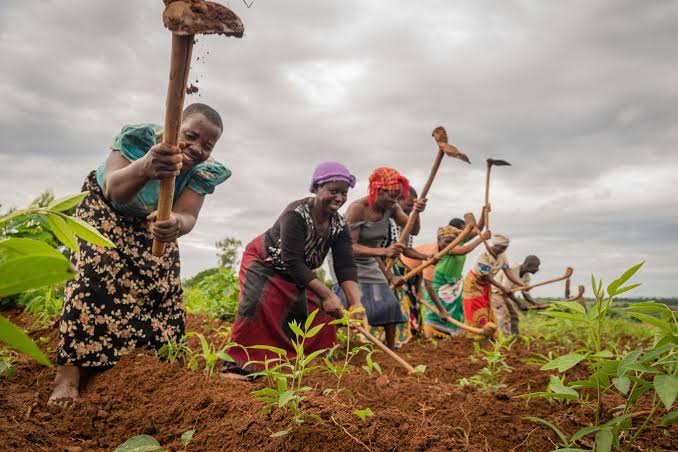In Nigeria, agriculture is not just an industry; it has the potential to be the backbone of the economy, providing livelihoods for millions. While the sector has enormous potentials for growth and development, there is one often overlooked, but vital component; rural women. These women form the invisible backbone of the country’s agriculture sector, working tirelessly in the fields, yet their full potentials remain largely untapped. Empowering these women through training and skills development would invariably have transformative effects on both the agriculture sector and the lives of rural families.
Rural women in Nigeria have always played significant role in farming by being responsible for planting, weeding, harvesting, and post-harvest activities. They are also involved in diverse agricultural practices, from crop cultivation to poultry, and to livestock farming. Yet, their contributions often go unnoticed, and they equally face numerous challenges such as limited access to resources, lack of market information, and traditional gender roles.
Skills development programmes tailored to rural women can be a game-changer. They equip women with the knowledge and expertise needed to enhance their productivity and income because when rural women gain access to training, they not only become better farmers, but also effective agribusiness entrepreneurs by diversifying their agricultural activities, explore value addition, and create market linkages. Consequently, several organisations and government initiatives are now recognising the potentials of skills development for rural women. They include programmes covering financial literacy, agronomy, post-harvest management, and marketing strategies.
These initiatives aim to empower rural women to take charge of their farms and businesses. The impact of such training programmes is evident in various success stories across Nigeria. Women who have undergone skills development training have increased their crop yields, diversified into high-value crops, and even ventured into agro-processing. Many are now serving as role models and mentors in their communities, inspiring others to follow in their footsteps for while progress is being made, challenges remain and pressing. They include insufficient access to training opportunities, limited resources, and deeply ingrained gender biases hinder the full potential of rural women in agribusiness.
A comprehensive approach that can addresses these challenges through policy support, financial inclusion, and broader access to training, is crucial. Empowering rural women through skill development in agribusiness is not just about improving their lives positively; it’s about strengthening the entire agriculture sector and, ultimately, the nation’s quest for food security. It is high time that Nigeria recognised the valuable contributions of rural women in agriculture and invests in their development. As the saying goes, “When you empower a woman, you empower a nation”, and by empowering rural women in agribusiness, Nigeria is certainly poised for a brighter agricultural future.



